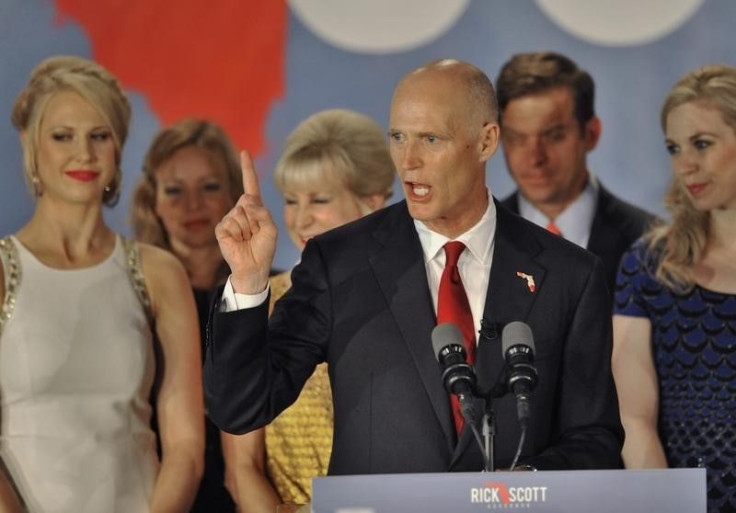Florida Governor Sues Obama Administration Over Health Care Funding

TALLAHASSEE/MIAMI (Reuters) - Florida Governor Rick Scott sued the Obama administration on Tuesday, challenging the federal government’s decision not to extend a $1 billion healthcare funding program for low-income patients.
The state argued that federal healthcare officials cut the funding as a way to coerce Florida into dropping its refusal to expand Obamacare for the working poor in Florida.
Florida's Republican leaders and the Democratic Obama administration are deeply split over $51 billion available over 10 years to expand Medicaid coverage to some 1 million Floridians under the Affordable Care Act, the formal name for Obamacare.
"The president, once again, is overstepping his authority, this time by trying to force Florida to expand Medicaid through the Affordable Care Act," Florida Attorney General Pam Bondi said in a statement announcing the lawsuit.
"The federal government is trying to do precisely what the U.S. Supreme Court held that the Constitution prohibits it from doing: forcing states to expand Medicaid by threatening to cut off funding for unrelated programs," she added.
In 2012, the U.S. Supreme Court upheld Obama's signature healthcare law but ruled that each state could decide on the law's expansion of eligibility for Medicaid.
Bondi argued it was unconstitutional for the Obama administration to now try to use the Low Income Pool (LIP) as a "bargaining chip" to force Florida to accept the Medicaid expansion.
Medicaid expansion would provide health insurance to working adults who are too poor to purchase plans under Obamacare but unable to qualify for traditional government Medicaid programs.
But Scott and his Republicans allies say Medicaid expansion would not cover Florida's uncompensated healthcare costs, while LIP met "separate and distinct" needs, such as funding for children's hospitals and medical schools.
Florida received about $1.3 billion in federal LIP funding in 2014, but it came with a warning that the program lacked transparency and could be cut.
The state had earnestly sought to negotiate an extension of the program while addressing the federal concerns, according to the lawsuit filed against the U.S. Department for Health and Human Services.
The decision to no longer fund the LIP program put Florida "in an impossible position," it said. "Come June 30, the fiscal year will end in Florida and LIP funding will run dry."
Medicaid expansion has been deadlocked in Florida's Republican-controlled legislature, blocking agreement on the state's $80 billion budget.
State senators want the money, but the more conservative House of Representatives remains opposed.
Scott, a former hospital company chief executive, was once a tepid supporter of expanding Medicaid but recently changed course.
Conservatives have blocked efforts to expand Medicaid in several Republican-leaning states.
(By David Adams and Bill Cotterell; Editing by Jonathan Oatis)



























